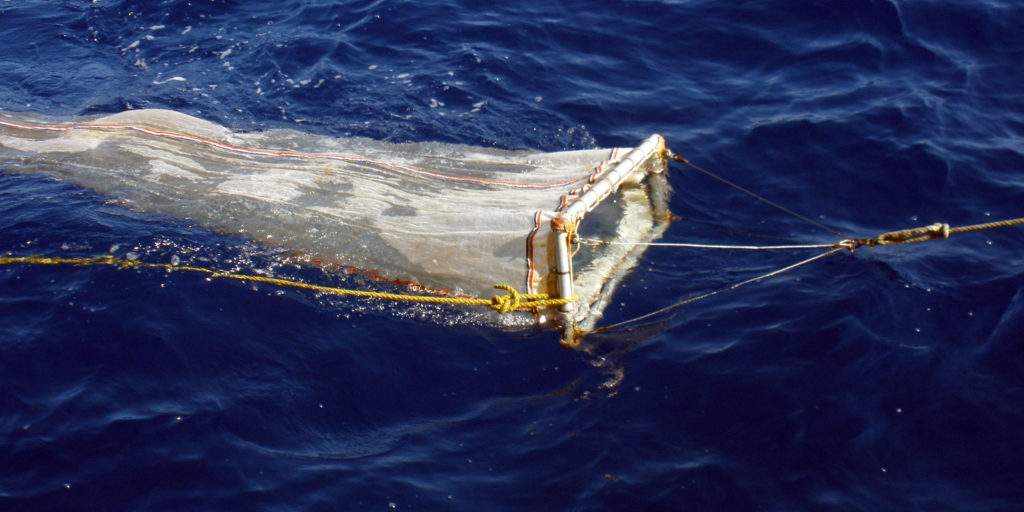Plastics and other man-made debris enter the ocean by a variety of pathways, including beaches, rivers and waterways, but also as a result of natural disasters as storms, tsunamis, floods, losses during fishing activities, and accidental or illegal dumping from ships. Whatever its source, debris in the ocean is transported by ocean currents, waves, and wind. The movement of litter of various size and buoyancy is difficult to predict because of poorly known near-surface currents and complex hydrodynamics of interaction of solid objects with these currents, waves, and wind. Furthermore, solid materials behave differently from oil spills or other liquid chemical contaminants. Litter in the ocean, from microplastics to large visible objects, is a major environmental concern because of the potential effects of these, often human-made, materials on individual marine organisms and the whole ecosystem. The purpose of this SCOR working group is to identify gaps in our knowledge of the processes that control the distribution and movement of ocean debris and suggest steps to improve the modeling and observation of these processes, including remote sensing with satellites.
- Chair(s)
- Stefano Aliani (Italy)
- Vice-Chair(s)
- Nikolai Maximenko (USA), Kara Lavender Law (USA), and Erik van Sebille (Netherlands)
- Other Full Members
- Bertrand Chapron (France), Irina Chubarenko (Russia), Atsuhiko Isobe (Japan), Victor Martinez-Vicente (UK), Peter Ryan (South Africa), Won Joon Shim (South Korea), and Martin Thiel (Chile)
- Associate Members
- Melanie Bergmann (Germany), Yi Chao (USA), Baylor Fox-Kemper (USA), Denise Hardesty (Australia), Tobias Kukulka (USA), Laurent Lebreton (New Zealand), Christophe Maes (France), and Miguel Morales Maqueda (UK)
- Reporter
- Ilka Peeken
- Terms of Reference
Identify gaps in our knowledge of the near-surface ocean dynamics that may affect litter distribution and transport.
Improve future marine litter modelling capabilities.
Evaluate existing and emerging remote sensing technologies that can be applied to marine litter in the open ocean.
Improve awareness of the scientific understanding of marine debris, based on better observations and modelling results.
- Approved
- September 2017
- Completed
- April 2024
- Financial Sponsors
- SCOR, NSF
- Meetings
11 March 2018 in San Diego, California, USA
7-9 May 2019 in Utrecht, Netherlands
May 2021 (online)
June 2022, Cascais, Portugal
November 2022 in Punta del’Este, Uruguay
April 2022 (online)
May 2023 in Paris, France
- Group Website
- http://scor-flotsam.it
- Publications
- Maximenko, N., Corradi, P., Law, K. L., Van Sebille, E., Garaba, S. P., Lampitt, R. S., Galgani, F., Martinez-Vicente, V., Goddijn-Murphy, L., Veiga, J. M., Thompson, R. C., Maes, C., Moller, D., Löscher, C. R., Addamo, A. M., Lamson, M. R., Centurioni, L. R., Posth, N. R., Lumpkin, R., … Wilcox, C. (2019). Toward the Integrated Marine Debris Observing System. Frontiers in Marine Science, 6. https://doi.org/10.3389/fmars.2019.00447
van Sebille, E., Aliani, S., Law, K. L., Maximenko, N., Alsina, J. M., Bagaev, A., Bergmann, M., Chapron, B., Chubarenko, I., Cózar, A., Delandmeter, P., Egger, M., Fox-Kemper, B., Garaba, S. P., Goddijn-Murphy, L., Hardesty, B. D., Hoffman, M. J., Isobe, A., Jongedijk, C. E., … Wichmann, D. (2020). The physical oceanography of the transport of floating marine debris. Environmental Research Letters, 15(2), 023003. https://doi.org/10.1088/1748-9326/ab6d7d
Martínez-Vicente, V., Clark, J. R., Corradi, P., Aliani, S., Arias, M., Bochow, M., Bonnery, G., Cole, M., Cózar, A., Donnelly, R., Echevarría, F., Galgani, F., Garaba, S. P., Goddijn-Murphy, L., Lebreton, L., Leslie, H. A., Lindeque, P. K., Maximenko, N., Martin-Lauzer, F.-R., … Vethaak, A. D. (2019). Measuring Marine Plastic Debris from Space: Initial Assessment of Observation Requirements. Remote Sensing, 11(20), 2443. https://doi.org/10.3390/rs11202443
Wichmann, D., Delandmeter, P., & van Sebille, E. (2019). Influence of Near‐Surface Currents on the Global Dispersal of Marine Microplastic. Journal of Geophysical Research: Oceans, 124(8), 6086–6096. https://doi.org/10.1029/2019JC015328
- Mountford, A. S., and Morales Maqueda, M. A. (2021). Modeling the Accumulation and Transport of Microplastics by Sea Ice. J. Geophys. Res. Oceans 126. doi: 10.1029/2020JC016826.
- Chenillat, F., Huck, T., Maes, C., Grima, N., and Blanke, B. (2021). Fate of floating plastic debris released along the coasts in a global ocean model. Marine Pollution Bulletin 165, 112116. doi: 10.1016/j.marpolbul.2021.112116.
- Chubarenko, I., Esiukova, E., Bagaev, A., Isachenko, I., Demchenko, N., Zobkov, M., et al. (2018). “Behavior of Microplastics in Coastal Zones,” in Microplastic Contamination in Aquatic Environments (Elsevier), 175–223. doi: 10.1016/B978-0-12-813747-5.00006-0. (In Russian)
- Aliani, S., Basurko, O. C., Arias, M., Isobe, A., Rubio, A., Topouzelis, K., et al. (2022). Editorial: Marine Litter Windrows. Front. Mar. Sci. 8, 827907. doi: 10.3389/fmars.2021.827907.
